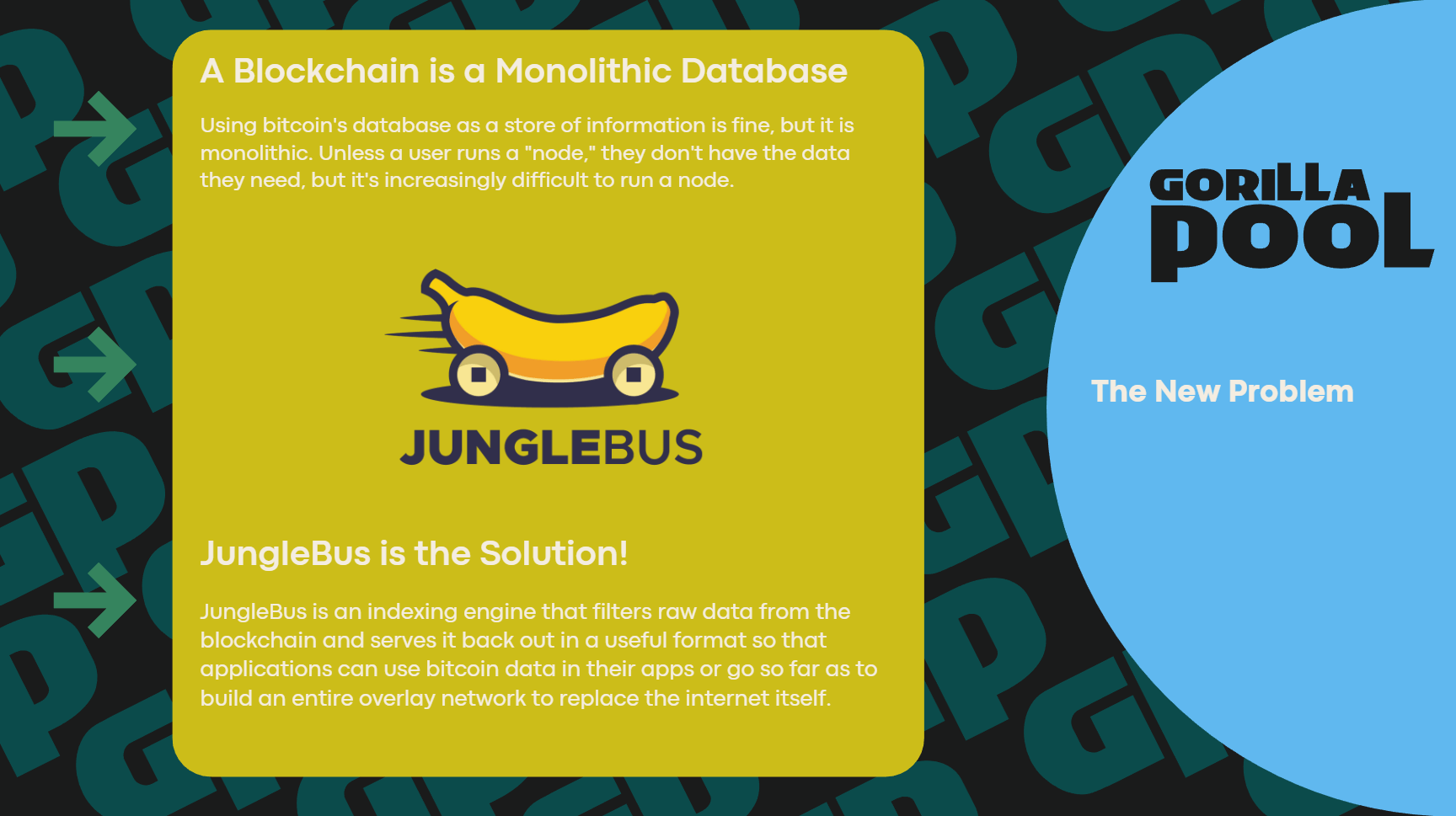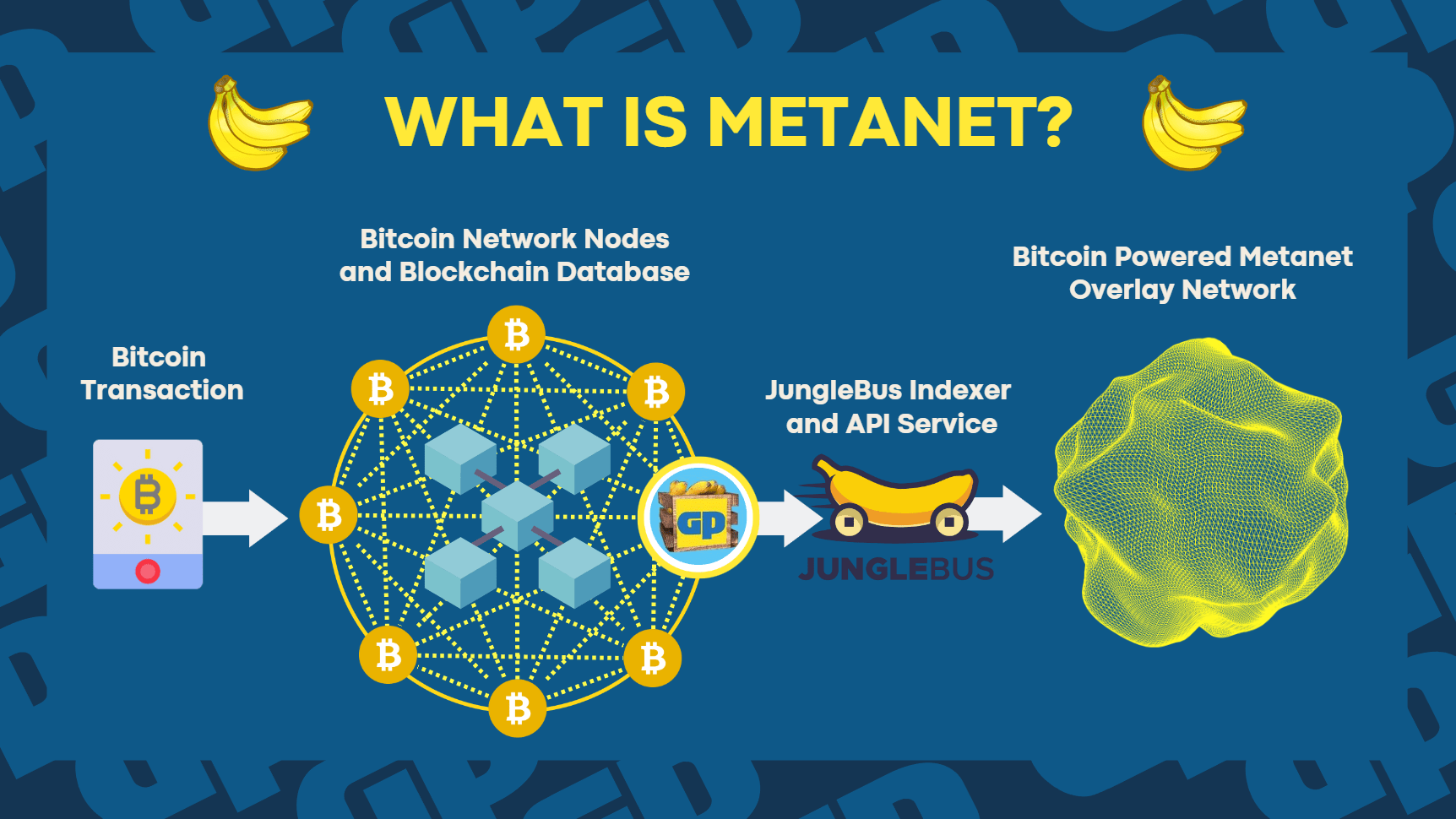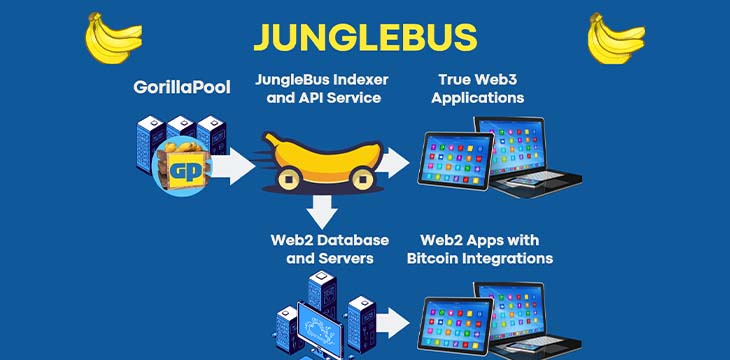|
Getting your Trinity Audio player ready...
|
Bitcoin is creating a new economy with the “Internet of Value” concept: monetizing data itself and returning power to users. As terabytes of new information flow onto the network every hour, it’s time to start thinking about how data on the BSV blockchain could be filtered and searched. JungleBus, by GorillaPool, has created the concept of the indexing subscription service. In a video workshop, Kurt Wuckert Jr. and Luke Rohenaz explain why the world needs indexing so badly and how JungleBus can solve the problem.
Anyone who’s looked in dismay at their ever-expanding digital photo folder can understand the need for a reliable indexer. Decades of images, recorded by the time taken but with nothing else to identify them other than the image itself— looking for something specific can be a nightmare. Now imagine all the world’s data recorded and stored by timestamp alone—it’s orderly, but unusable without some kind of indexing and the ability to search using different parameters.
To explain JungleBus, you must first explain (the real) Bitcoin
JungleBus is an indexing engine that filters raw data from the blockchain and serves it back out in a useful format so that applications can use Bitcoin data in their apps or go so far as to build an entire overlay network to replace the internet itself.
Did you get all that? It might sound like a bit much at first. The workshop is aimed not only at existing Bitcoin users but also newcomers, so Wuckert spends the first segment explaining what Bitcoin is really about, the problems it could solve, and some fundamentals about how it works.
“More than just a payments network or an investment opportunity, Bitcoin is the Internet of Value,” he states.

With Bitcoin, it’s possible to create a worldwide peer-to-peer network able to secure and transact unique data items without the risk of “double-spends” or duplicates. Peer-to-peer is a more efficient way to scale the network than simply broadcasting all transactions to everyone, and proof-of-work (PoW) is the superior economic incentive model to keep all this secure and trustable.
“There’s a brilliance to the power of communication, and Bitcoin is just economic communication. Bitcoin allows you to add value to every bit or byte of data that crosses the network,” Wuckert remarks.
Data becomes more valuable as it becomes more ubiquitous, and over a trillion megabytes of data are created globally daily. Right now, the ones profiting from that data proliferation are Silicon Valley megacorps and online service providers, who use the information users upload to increase their own wealth, power, and influence (at users’ expense).
As for networks like BTC, their participants have become too absorbed in downstream issues like libertarianism and speculative investment, which in turn has influenced those networks’ development approach. Bitcoin (BSV), on the other hand, is more interested in creating new economies by monetizing data itself. It also hands ownership of that data back to those who create and/or own it: the users.
Blockchain doesn’t magically solve all these problems by itself, though, and there are some shortcomings.
“The blockchain is just a giant bucket of unsorted data,” Wuckert says, or “a monolithic database.” And here’s where JungleBus comes in. How do you index, categorize, and identify the terabytes (or more) of new data Bitcoin’s transaction processors record onto the network every day? How can you ever know what data is important and what can be ignored? How do we filter it, find out (for example) what data are payments, what are jpegs or audio files, what are tokens or scripts, or personal and business records?
As a mining pool, GorillaPool is running some of the most powerful nodes in the history of Bitcoin. They operate in large data centers, with 10GB connections, with the ability to process some of Bitcoin’s largest-size blocks with minimum-possible latency.
It’s quite challenging to set up and operate your own full node. It shouldn’t be necessary for an application developer to take on the role of infrastructure manager just to keep it working. After all, it isn’t necessary to run your own ISP to build an application on today’s internet.
“JungleBus is essentially a piece of middleware that allows you to bootstrap an overlay network of just your (own) data,” Wuckert shares. It’s an interface to identify and filter only the data relevant to you and your project. Instead of verifying the entire world’s random data stream, you can verify only your own and verify its provenance just as securely as if you were checking everything. JungleBus indexes data directly from Bitcoin miners (transaction processors), which Wuckert calls “directly to the metal” and is more reliable and scalable than existing index databases that communicate through their providers’ servers.
JungleBus allows developers to set up their own companies and services for a handful of dollars, rather than the six-figure or more sums associated with trying to verify transactions on your own full node operation.
How does JungleBus work?
Luke Rohenaz then takes over leading the workshop to explain JungleBus’ inner workings and use cases in more specific detail.
“Where JungleBus really shines is with cross-platform interoperability,” he says. He explains that it works as a back-end to the API that powers your applications and is not something you connect directly to the app itself. A single JungleBus subscription powers one app—users don’t have to use APIs to check data.
JungleBus does the “deep inspection” on transaction outputs to identify and flag data/protocol types. From that analysis, it can create a feed that can categorize data of interest across multiple different services. Rohenaz demonstrates the currently-supported data reference or media types, which include BAP (Bitcoin Attestation Protocol), RUN, MAP, BITCOIN, and B, among others. Subscribing users can configure their own dashboards with a selection of fields to follow and verify only relevant transaction data.

JungleBus works in real-time and can even check data in mempool transactions (meaning even txs that haven’t yet been processed), and it also allows for blockchain “re-orgs” and other errors. For developers, Rohenaz shows how to configure and code a subscription based on raw transaction data, using data across services like BitChat and BlockPost as examples.
Rohenaz describes all this as “a big blue open sea of opportunity for anyone who wants to build interoperable apps” and hints at an upcoming hackathon next month to explore new ideas. To kick this off, he suggests some possibilities. Watch Wuckert and Rohenaz’s workshop in the video above, and start thinking of exciting ways you’d like to organize the world’s data.
Watch: Build on Blockchain – Common Challenges & Tools to Make it Easier

 02-25-2026
02-25-2026 




